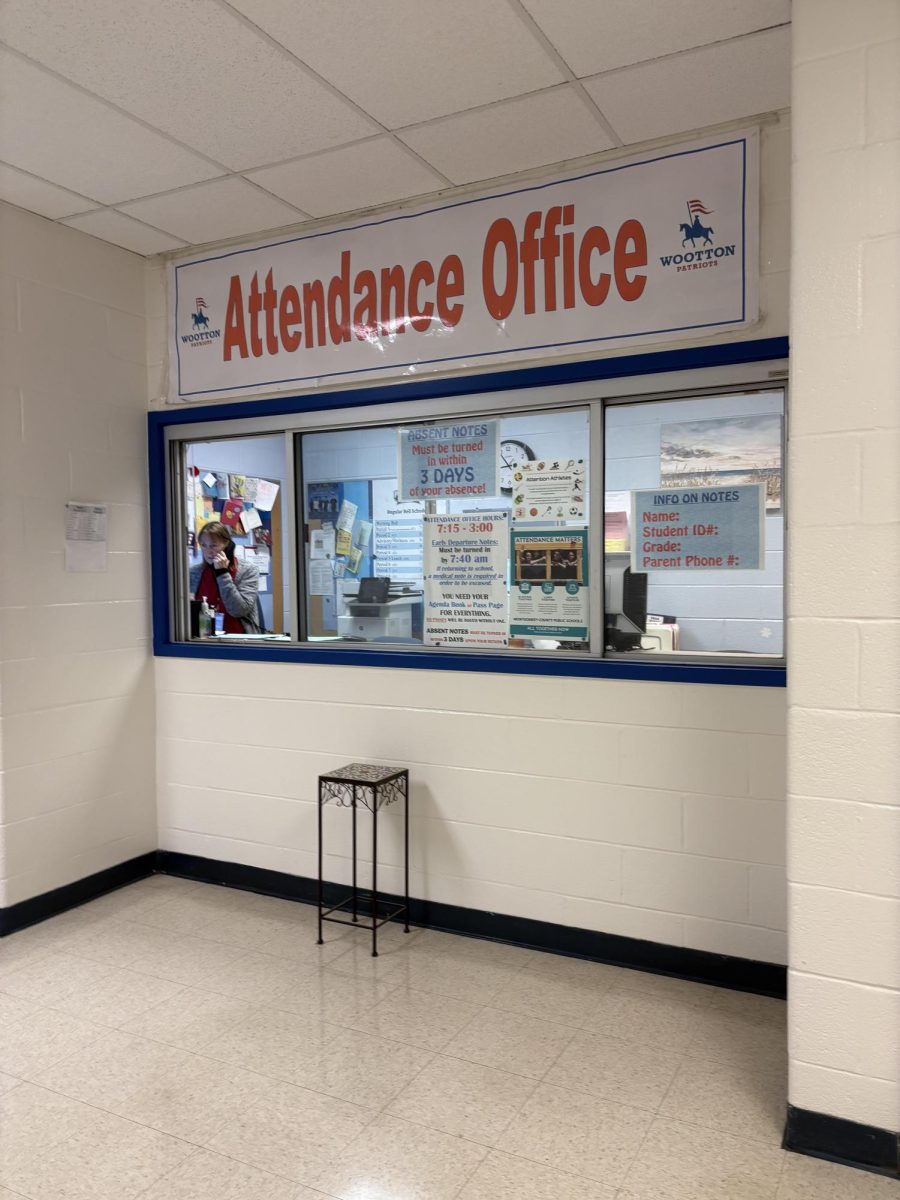In an MCPS Board of Education meeting on Apr. 10, leadership introduced a series of proposals for sweeping reforms to the county’s grading policies. These potential changes include the calculation of semester grades by averaging quarter grade percentages, reinstating summative assessments — or finals — at the end of each semester, audits of honors classes, increased efforts at uniformity of late grades and more. Over five years after the beginning of the COVID-19 pandemic, these changes represent a return to the direction of pre-pandemic policies, meant to improve issues of student attendance and grade inflation.
A memo published on the day of the meeting by MCPS Superintendent of Schools Thomas W. Taylor outlined that the county’s most pressing concern is student absenteeism, particularly in quarters two and four. “Feedback and attendance data indicate higher absenteeism during the second half of the semester,” the memo said. Suggested revisions to the grading policy, known as Regulation IKA-RA, would aim to “promote student attendance throughout the semester,” according to the memo.
The suggestions included in the memo and presented at the meeting fall under three main categories. The first suggestion applies to changes to the grading policies themselves. The primary reforms proposed are the reinstatement of summative assessments, such as final exams and projects, at the end of each semester. The Board of Education said that they would determine and publicize requirements for these assessments in core classes — English, math, social studies and science — sometime during May this year.
Additionally, another major potential change would be regarding the calculation of semester grades, which are currently calculated by taking the average or higher letter grade between two quarters. English teacher Melissa Kaplan, who has taught in MCPS since 2009, said that under the current system, some students “only work to get a good grade first and third quarter and then don’t try second and fourth quarter,” because it is “easy” to still get good semester grades. Instead, Taylor’s memo suggests deriving semester grades from the average percentage of a student’s quarter grades. Both of these policies would add greater weight to second and fourth quarter performance than currently exists, making it more difficult for students to obtain good grades while slacking off during these marking periods.
The second category of proposed changes is more clearly defining the policies that already exist. For example, the current “50 percent rule” dictates that, unless a student’s parents are informed, a student cannot receive less than 50% on any assignment for which they displayed “meaningful effort.” Given the relative vagueness of that criteria, there have been inconsistencies with the application of the 50 percent rule across schools and even between teachers at the same school. The Board of Education intends to establish a clearer definition of these standards in order to create a more cohesive grading system and prevent grade inflation for certain students who use the 50 percent rule to “game the system.” Kaplan said she believes the automatic 50 percent rule for submitted work does a “disservice to students” because it is “far too lenient.”
Similarly, Taylor’s memo said that MCPS leadership intends to more clearly define the allowed reassessment windows and deadlines for late work. This is meant to create clear timelines for late grades, to rectify inconsistencies between teachers. Rules around late work are also a prime issue for teachers who, under current policy, are supposed to accept late work for 50 percent credit up until the end of the quarter. “I think it shouldn’t be so difficult for teachers to assign a [zero] when a student does not submit an assignment; there should be fixed deadlines at which point students cannot submit assignments for credit,” Kaplan said.
Lastly, the Board’s proposed plans include increased training and investigation of current policy applications and issues. The former primarily involves teachers being given training on how to align with one another and the revised Regulation IKA-RA and guidelines. The latter centers around a planned audit of which classes are designated as “honors,” designed to identify instances of the label being used to inflate weighted GPAs.
While MCPS officials such as Taylor and Board member Rita Montoya argue that these changes are necessary to maintain the integrity of MCPS and student learning, there are potential issues with their implementation. These implementations would first take effect for the 2025-26 school year, raising the question of whether they will be implemented for all grades, or only incoming freshman and subsequent classes. While some, such as MCPS Student Member of the Board Praneel Survana, have said that it would be unfair to change grading policies for students who have already completed at least one year of high school under the current policies, others believe only applying the revised rules to freshman next school year would cause problems. Montoya, for one, said that in mixed-grade classes, asking the teacher to apply certain grading rules to ninth graders and others to the rest of their students would be “one additional thing” for teachers to do, inconveniencing staff and students alike.
Overall, the ideas proposed in Taylor’s memo seem to represent a shift away from leniency in county grading policy, in response to issues such as absenteeism and grade inflation. “[These changes] would be an adjustment for students… It would improve the motivation and grit of our students as well as the reputation of the county,” Kaplan said.
Many of the policies potentially being rolled back were implemented during the COVID-19 pandemic, where student well-being was prioritized over academic rigor, though some began before. However, in a post-pandemic world, MCPS leadership such as Taylor have said they want a “return to rigor” for MCPS and its grading system. The Board of Education will continue to meet in the coming months to determine and finalize any changes to Regulation IKA-RA, and said they will communicate these new rules to the MCPS community by July 1.
The current policies “have led to grade inflation in MCPS over the last decade, which colleges have noticed,” Kaplan said. “New policies could improve student work ethic, student attendance, and reflect real learning and high standards in the classroom.”









